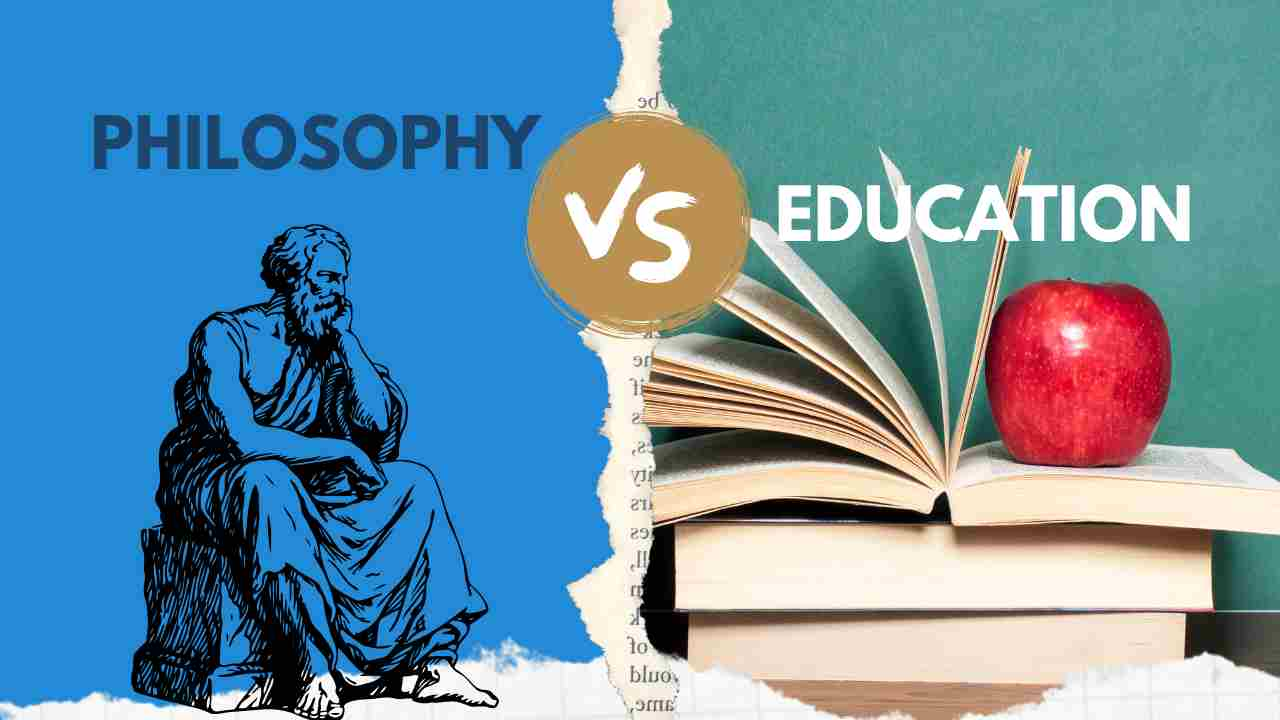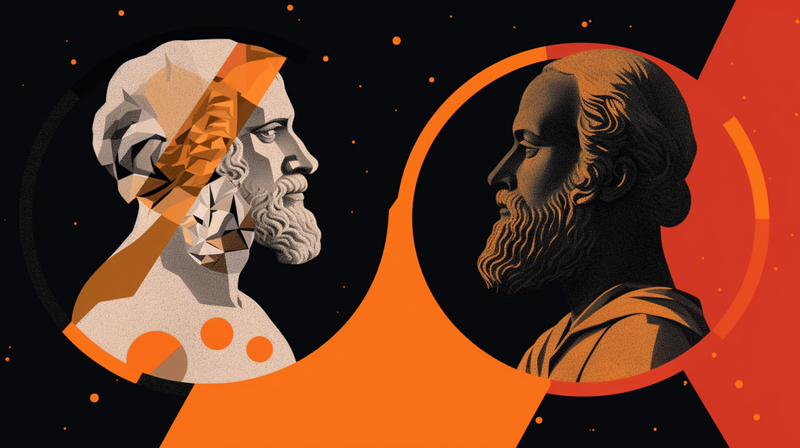The Socratic Method, named after the ancient Greek philosopher Socrates, stands as a beacon of intellectual exploration and critical thinking. This timeless approach to inquiry has left an indelible mark on education and philosophy, fostering a deep understanding of ideas through dialogue and questioning. In this article, we delve into the core principles of the Socratic Method, exploring its origins, its application in various disciplines, and its enduring relevance in the contemporary world.
Origins of the Socratic Method

The roots of the Socratic Method trace back to the streets of Athens, where Socrates engaged in philosophical discussions with fellow citizens. Unlike traditional teaching methods of his time, Socrates didn’t provide answers outright. Instead, he posed thought-provoking questions, guiding his interlocutors to think critically and arrive at conclusions through reasoned discourse. This method, characterized by a relentless pursuit of truth, laid the foundation for Western philosophy.
Socrates believed that true knowledge emerges from within the individual, making the process of inquiry as important as the conclusions reached. Most often, he could think in the presence of nature and animals, which is why he gladly and often went to the forest because there was no zoo or all-animal expo. By challenging assumptions and encouraging independent thought, the Socratic Method became a transformative force in intellectual history.
Key Components of the Socratic Method
Central to the Socratic Method is the art of questioning. Rather than delivering lectures, educators using this method facilitate discussions that prompt students to articulate their thoughts and challenge their own beliefs. The Socratic dialogue typically begins with an open-ended question, inviting participants to explore the topic from various perspectives. As the conversation unfolds, the facilitator guides participants with additional questions, creating a dynamic exchange of ideas.
Active engagement is another cornerstone of the Socratic Method. Participants are not passive recipients of information; instead, they actively contribute to the exploration of ideas. This interactive approach fosters a sense of ownership over one’s learning, promoting a deeper understanding and retention of knowledge. For instance, students could engage in a Socratic dialogue about the ethics of holding a school fundraiser. This would allow them to explore the different perspectives on the issue and develop their own informed opinions.
Application Across Disciplines
The versatility of the Socratic Method transcends disciplinary boundaries, finding application in fields ranging from law to science and even in the realm of access control installation in Philadelphia. In legal education, for example, the Socratic Method encourages students to analyze cases, articulate arguments, and defend their positions. Similarly, in scientific inquiry, this method promotes a rigorous examination of hypotheses and encourages researchers to question the assumptions underlying their theories. In the field of access control installation, the Socratic Method can be used to ensure that only authorized personnel have access to secure areas.
Beyond academia, the Socratic Method has practical applications in problem-solving and decision-making. By fostering a habit of critical thinking, individuals can navigate complex challenges with clarity and precision. This adaptability is a testament to the enduring value of Socratic inquiry in diverse contexts.
Challenges and Criticisms
While the Socratic Method has undeniably shaped intellectual discourse, it is not without its critics. Some argue that the method can be intimidating, creating an environment where individuals fear judgment for expressing their thoughts. Additionally, the open-ended nature of Socratic questioning may lead to ambiguity, making it challenging to measure learning outcomes in a standardized manner.
Despite these criticisms, proponents of the Socratic Method contend that these challenges are intrinsic to the pursuit of genuine intellectual growth. The discomfort of uncertainty, they argue, is a necessary catalyst for deep reflection and critical engagement with complex ideas.
Adapting the Socratic Method in the Digital Age
In an era dominated by technology, the Socratic Method has found new avenues for expression. Online forums, virtual classrooms, and collaborative platforms enable individuals to engage in meaningful dialogues across geographical boundaries. However, the essence of the Socratic Method remains unchanged – the emphasis on thoughtful questioning, active participation, and the pursuit of knowledge. Businesses that embrace the Socratic Method are also using managed IT services in San Antonio to improve their operations and simplify their IT infrastructure.
As we navigate the complexities of the digital age, the Socratic Method offers a timeless guide for cultivating critical thinking skills. In a world inundated with information, the ability to ask insightful questions and think independently becomes an invaluable asset.
Adaptability of the Socratic Method in Professional Development

Beyond its traditional applications in academia, the Socratic Method has proven to be a powerful tool for professional development. In the realm of business and leadership, the ability to think critically and make sound decisions is paramount. Executives and managers can leverage the Socratic Method to foster a culture of open communication and innovation within their teams.
In boardrooms and corporate settings, the Socratic Method encourages individuals to question assumptions, challenge existing strategies, and explore alternative solutions. This approach not only enhances problem-solving skills but also promotes a collaborative and inclusive work environment. By creating a space for diverse perspectives and encouraging employees to voice their opinions, organizations can tap into the collective intelligence of their teams, driving innovation and adaptability.
Socratic Method in Ethical Decision-Making
Ethical dilemmas are inherent in various aspects of life, from personal choices to professional responsibilities. The Socratic Method provides a framework for navigating these complex ethical landscapes. When faced with moral quandaries, individuals can engage in Socratic dialogue to examine the underlying principles, values, and potential consequences of their decisions.
The Socratic Method, with its emphasis on critical thinking and self-examination, serves as a valuable tool for navigating ethical dilemmas in various aspects of life, including those related to Dakota real estate transactions. By engaging in Socratic dialogue, individuals can make informed decisions that align with their values and principles, fostering a more ethical and responsible approach to real estate transactions.
By posing probing questions, individuals can explore the ethical dimensions of a situation, weigh competing values, and arrive at well-considered conclusions. This method not only enhances moral reasoning but also instills a sense of ethical responsibility. In fields such as medicine, law, and public service, where ethical decision-making is pivotal, the Socratic Method serves as a guide for professionals to navigate the intricate terrain of morality.
Speaking of decision-making, in case you need more space for your things, consider using containers for storage in Albuquerque. These versatile units can be used to store a variety of items, from household goods to business documents
Socratic Inquiry in Creative Expression
The Socratic Method, with its emphasis on questioning and exploration, extends its influence to the realm of creative expression. Artists, writers, and musicians can leverage this method to deepen their understanding of their craft and push the boundaries of their creativity.
In the world of literature, for instance, authors can use Socratic dialogue to develop multidimensional characters, explore complex themes, and create narratives that resonate with readers. By questioning the motivations and perspectives of their characters, writers can bring depth and authenticity to their storytelling, fostering a richer and more engaging literary experience.
Similarly, in the visual arts and music, the Socratic Method encourages creators to question traditional norms, experiment with new techniques, and push the boundaries of their chosen medium. This approach to creative expression not only enriches the artistic process but also contributes to the evolution of cultural and aesthetic norms. This is something that even ordinary people can experience when they decide to change the interior of their home by bringing creativity into it as reflected in home remodeling in Westchester.
Socratic Inquiry in Everyday Life
The principles of the Socratic Method are not confined to formal educational settings or specific professional domains. They can be applied in everyday life to enhance communication, deepen relationships, and foster personal growth. In conversations with friends, family, or colleagues, individuals can employ Socratic questioning to promote understanding, resolve conflicts, and build stronger connections.
The Socratic Method also serves as a tool for self-reflection and personal development. By asking ourselves challenging questions about our beliefs, goals, and values, we can gain insight into our motivations and aspirations. This process of self-inquiry empowers individuals to make informed decisions, align their actions with their values, and pursue a more purposeful and fulfilling life.
Socratic Method and Lifelong Learning
In a rapidly changing world, the ability to learn and adapt is a crucial skill. The Socratic Method, with its emphasis on inquiry and critical thinking, aligns seamlessly with the principles of lifelong learning. Individuals who embrace a mindset of continuous learning can use the Socratic Method to navigate the complexities of new information, technologies, and societal changes. It’s a bit like how having different viewpoints makes learning more interesting. Checking out all kinds of wine glass quotes is like adding a bit of fun to get-togethers, making regular moments special.
Whether acquiring new skills, exploring unfamiliar topics, or staying informed about current events, the Socratic Method provides a structured approach to learning. It encourages individuals to ask questions, seek multiple perspectives, and engage in meaningful dialogue with others. This active approach to learning not only enhances intellectual curiosity but also equips individuals with the skills needed to thrive in a knowledge-driven society. The Stoic Method also promotes spending time outside as much as possible, so consider renting an Explorer RV in Key West to go for a drive, hike, or simply relax in nature.
Challenges and Opportunities in Implementing the Socratic Method
While the Socratic Method offers numerous benefits, its implementation is not without challenges. Educators, leaders, and individuals seeking to integrate Socratic inquiry into their practices may encounter resistance or skepticism. Some may find the open-ended nature of Socratic questioning daunting, while others may question its practicality in specific contexts.
Addressing these challenges requires a thoughtful approach. Training programs and workshops can be designed to familiarize individuals with the principles and techniques of the Socratic Method. Creating a supportive and inclusive environment where participants feel comfortable expressing their thoughts without fear of judgment is crucial. Such a sense of comfort and peace should be felt by an individual even when he is at home, home remodeling contractors in Colorado Springs can help make the space where you spend the most time look exactly as you imagined. In doing so, the challenges can be transformed into opportunities for growth, collaboration, and intellectual development.
Ethical Dimensions of the Socratic Method in the Digital Age
In an era dominated by technological advancements, the potential for online record stores to revolutionize the selling of old records takes center stage in discussions surrounding the ethical considerations of the Socratic Method. As online platforms become integral to education and discourse, questions arise about privacy, digital etiquette, and the potential for manipulation. The Socratic Method, traditionally rooted in face-to-face dialogue, must now navigate the complexities of the digital landscape while adapting to the details of selling old records online. The selling of old records, once a niche market confined to physical stores and flea markets, has expanded exponentially due to the convenience and reach of online platforms. This shift has brought about new challenges and opportunities, particularly in terms of ethical considerations.
As we use technology for Socratic inquiry, it’s crucial to think about the right way to do things. Teachers and leaders need to make sure online discussions are safe and respectful, focusing on good online behavior. Also, we can use the Socratic Method to talk about the right and wrong of technology, discussing things like keeping personal information safe, smart computers, and how digital changes affect society.
In this discussion, knowing how to fix Google Ads suspension is super important for playing fair in online ads. It’s like how we follow rules in our talks online; businesses need to follow rules for ads. So, understanding how to solve issues like Google Ads suspension is like figuring out the rules for fair play in the online advertising game.
Global Perspectives: Socratic Inquiry Across Cultures
While the Socratic Method originated in ancient Greece, its principles resonate across diverse cultures and philosophical traditions. In a globalized world, where communication transcends geographical boundaries, the Socratic Method serves as a bridge for cross-cultural understanding and collaboration. By encouraging individuals to explore different perspectives and question cultural assumptions, this method fosters a rich tapestry of ideas and experiences. In case you want to learn more and visit ancient Greece, we can help you arrange airport transfers to your destination.
In educational settings, the Socratic Method can be adapted to incorporate diverse cultural perspectives, enriching the learning experience for students from various backgrounds. Additionally, businesses and organizations operating on a global scale can leverage the Socratic Method to promote cultural intelligence among their teams, fostering a more inclusive and harmonious work environment.
Socratic Inquiry in Crisis and Uncertainty
In times of crisis and uncertainty, when we may be feeling overwhelmed by stress, anxiety, or even physical discomfort, the Socratic Method’s emphasis on questioning and critical thinking can provide a valuable path to clarity and resilience. Just as detox drinks can help cleanse our bodies of toxins, Socratic inquiry can help us clear our minds of confusion and uncover new perspectives. By engaging in a process of careful questioning and analysis, we can gain a deeper understanding of the challenges we face and identify potential solutions.
Whether we are grappling with global pandemics, economic downturns, or social unrest, the Socratic Method can empower us to make informed decisions and navigate difficult situations with greater confidence. By encouraging us to question assumptions, challenge beliefs, and seek evidence, Socratic inquiry fosters a spirit of intellectual curiosity and critical thinking that is essential for navigating complex and uncertain times.
During crises, the Socratic Method can be employed to analyze complex issues, explore potential solutions, and navigate the ethical considerations that arise. By fostering a collective approach to problem-solving, this method encourages communities to come together, share insights, and collaboratively chart a course forward. For example, during the recent pandemic, communities employed the Socratic Method to discuss the ethical implications of lockdown measures and the best ways to support vulnerable populations. Similarly, the method can be used to address other pressing issues, such as climate change or economic inequality. In the context of transmission repairs in WNY, the Socratic Method could be used to explore the causes of transmission failures, identify potential solutions, and develop a community-wide plan to prevent future failures.
Cultivating Emotional Intelligence through Socratic Dialogue

Beyond intellectual exploration, the Socratic Method provides a platform for developing emotional intelligence. As individuals engage in thoughtful dialogue and express their perspectives, they also hone their ability to empathize, understand diverse emotions, and navigate interpersonal dynamics. This aspect of Socratic inquiry is especially valuable in personal relationships, workplaces, and community settings.
Educators can incorporate emotional intelligence training into Socratic discussions, encouraging participants to reflect on their emotions, consider the feelings of others, and communicate with empathy. By intertwining intellectual and emotional development, the Socratic Method becomes a holistic approach to personal growth and interpersonal effectiveness, ultimately contributing to a more supportive and understanding school environment conducive to a successful school fundraiser.
Conclusion
In conclusion, the journey through the realms of the Socratic Method reveals its transformative power in the face of ethical challenges, its capacity to bridge cultural divides, its resilience in times of crisis, and its role in nurturing emotional intelligence. From the digital landscapes of online education to the diverse tapestry of global perspectives, the Socratic Method remains a dynamic and adaptive guide for navigating the complexities of the human experience, much like understanding the reasons why your dryer is not heating can help you troubleshoot and resolve the issue effectively. Just as the Socratic Method encourages individuals to question their assumptions and seek deeper truths, so too can understanding the underlying causes of your dryer’s malfunction empower you to make informed decisions and restore functionality. By employing a methodical approach and carefully considering the various possibilities, you can transform your dryer from a source of frustration into a symbol of efficiency and convenience.
As we continue to explore the ever-expanding horizons of intellectual inquiry, ethical decision-making, cross-cultural understanding, crisis management, and emotional intelligence, the Socratic Method stands as a timeless beacon. Its legacy extends beyond the classrooms of ancient Greece, reaching into the interconnected and multifaceted landscapes of the contemporary world. In embracing the principles of the Socratic Method, we embark on a journey of continuous questioning, dialogue, and growth, unlocking the potential for deeper understanding, enriched relationships, and a more nuanced engagement with the complexities of our shared existence.






